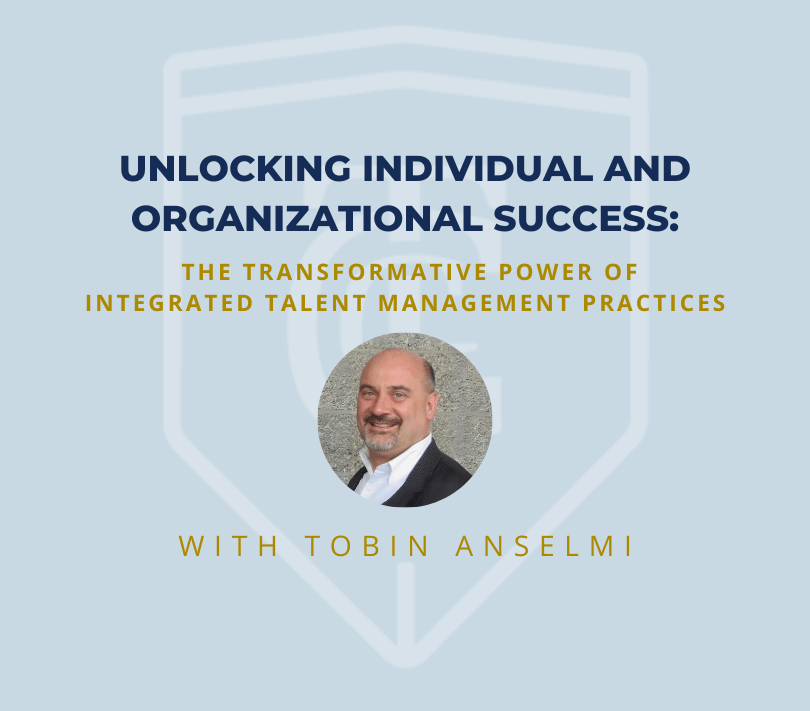
In the dynamic landscape of today’s corporate world, organizations are increasingly recognizing the pivotal role that talent management plays in achieving sustained success. Repeated studies have found organizations that more effectively manage talent (their human capital), outperform those that lack sound talent management practices.
Truly integrated talent management practices go beyond traditional HR functions, weaving a strategic “red thread” that not only enhances organizational performance but also fosters employee engagement and development. In this blog, we will delve into the benefits of integrated talent management practices, exploring their impact on organizational and employee performance, as well as their role in driving employee engagement and development.
Maximizing Organizational Performance through Talent Management
- Strategic Talent Management: Integrated talent management involves aligning HR strategies with organizational goals. By strategically managing talent, organizations can ensure that they have the right people with the right skills in the right positions at the right time. This contributes to enhanced organizational performance as teams are better equipped to meet challenges and seize opportunities.
- Performance Management for Continuous Improvement: Effective performance management is a foundational cornerstone of integrated talent management and requires people managers who are skilled and disciplined at engaging with their employees. Regular performance feedback sessions, and goal setting create a culture of continuous improvement. This iterative process not only boosts individual performance but also contributes to overall organizational success.
- Identifying and Nurturing High-Potential Employees: Integrated talent management practices prioritize the identification and development of high-potential employees. These individuals, often referred to as the future leaders of the organization, are crucial for long-term success. Investing in their growth ensures a pipeline of skilled and capable leaders.
Employee Engagement: The Heartbeat of Organizational Success
- Fostering a Culture of Employee Engagement: Talent management practices are instrumental in creating a workplace culture where employees feel engaged and connected. Engagement goes beyond job satisfaction; it involves emotional commitment and a sense of belonging. Integrated talent management strategies contribute to this by recognizing and appreciating employees’ contributions.
- Empowering Employees through Development Opportunities: Employee development is a key component of engagement. Integrated talent management emphasizes providing employees with opportunities for skill development, training, and career advancement. When employees see a clear path for individual and career growth within the organization, they are more likely to be engaged and committed.
- Leadership Development as a Catalyst for Engagement: Leadership development is a crucial aspect of talent management that directly impacts employee engagement. When employees witness the organization’s commitment to developing leaders from within, it creates a positive and inspiring work environment. Engaged leaders, in turn, inspire and motivate their teams.
Employee Development: Nurturing Talent for Long-Term Success
- Tailored Employee Development Plans: Integrated talent management involves crafting personalized individual development plans (IDPs). These IDPs consider individual strengths, weaknesses, and career aspirations. Tailored development plans ensure that employees receive the training and resources they need to excel in their roles.
- Continuous Learning Culture: A culture of continuous learning is a hallmark of organizations that prioritize integrated talent management. This involves not only formal training programs but also promoting a mindset of curiosity and adaptability. Employees are encouraged to seek out learning opportunities that contribute to their professional growth.
- Feedback and Recognition as Development Tools: Integrated talent management places a strong emphasis on regular feedback and recognition. Constructive feedback guides employees in their development journey, while recognition acknowledges their achievements. This creates a positive cycle where employees are motivated to continue their development efforts.
The benefits of integrated talent management practices extend far beyond the confines of traditional HR functions. By strategically aligning talent management with organizational goals, focusing on performance management, identifying and nurturing high-potential employees, fostering employee engagement, and prioritizing employee development, organizations can create a thriving ecosystem that propels both organizational and individual success. As the corporate landscape continues to evolve, integrated talent management remains a beacon guiding organizations toward sustained excellence.
About Tobin Anselmi
 Tobin Anselmi joined The Christopher Group Consulting Services Division in 2020 as a Managing Partner & Talent Management Practice Leader. Tobin holds a Ph.D. in I/O Psychology. Over the last 30+ years, Tobin has served as a consultant to organizational leadership on human capital management issues such as talent management (selection, performance management, development, and movement), organizational effectiveness, change management, and leadership development. He is direct, engaging, and result-oriented. His practical recommendations to organizational issues are grounded in years of experience developing and implementing solutions around the globe. To learn more about Tobin visit his bio page.
Tobin Anselmi joined The Christopher Group Consulting Services Division in 2020 as a Managing Partner & Talent Management Practice Leader. Tobin holds a Ph.D. in I/O Psychology. Over the last 30+ years, Tobin has served as a consultant to organizational leadership on human capital management issues such as talent management (selection, performance management, development, and movement), organizational effectiveness, change management, and leadership development. He is direct, engaging, and result-oriented. His practical recommendations to organizational issues are grounded in years of experience developing and implementing solutions around the globe. To learn more about Tobin visit his bio page.

